Switch to the mobile version of this page.
Vermont's Independent Voice
- News
- Arts+Culture
- Home+Design
- Food
- Cannabis
- Music
- On Screen
- Events
- Jobs
- Obituaries
- Classifieds
- Personals
Browse News
Departments
Browse Arts + Culture
View All
local resources
Browse Food + Drink
View All
Browse Cannabis
View All
-
Business

Cannabis Company Could Lose License for Using…
-
Culture

'Cannasations' Podcaster Kris Brown Aims to 'Humanize'…
-
True 802

A Burlington Cannabis Shop Plans to Host…
-
Business

Judge Tosses Burlington Cannabiz Owner's Lawsuit
-
Health + Fitness

Vermont's Cannabis Nurse Hotline Answers Health Questions…
Browse Music
View All
Browse On Screen
Browse Events
Browse Classifieds
Browse Personals
-

If you're looking for "I Spys," dating or LTRs, this is your scene.
View Profiles
Special Reports
Pubs+More
Driven by Grief and the Hope of Helping Others, Chip Piper Aims to Run 10 Marathons in 10 Days
Published May 8, 2024 at 10:00 a.m. | Updated May 15, 2024 at 10:10 a.m.
Help us pay for in-depth stories like this one by becoming a Seven Days Super Reader.
It's 6:30 a.m., and Chip Piper is headed out for a run on the Silver Lake Trail in Salisbury — though "run" is a loose term for his pace. The first mile climbs 466 feet, and it takes Piper about 19 minutes as he dodges icy patches and knobby roots — more of a hike than a run.
He turns around at a high point, extends his stride and accelerates downhill, splashing through mud puddles that soil his bright green HOKA sneakers. Heating up, he sheds his thick black gloves but keeps on his beanie, emblazoned with the words "Run Happy." Toward the bottom, he checks his GPS watch: He has run the third mile in nine and a half minutes.
He picks up the pace. "I can't have you thinking I'm that slow," he quips to a reporter who has tagged along.
Piper, 55, is no elite athlete. He's five foot seven with a solid build, and his gait sometimes resembles a shuffle. Yet between May 16 and 25, he'll attempt an almost unfathomably grueling physical challenge: running 10 marathons in 10 consecutive days. He's one of 12 people who are expected to participate in the 262-mile event in Ripton, during which runners will repeatedly scale a 26.2-mile course that gains almost 5,000 feet. It's part of an ultra-race series called Infinitus, organized by the Endurance Society, an organization whose logo is a crawling skeleton.
Despite his cheery hat, Piper describes his motivation for the Sisyphean contest as a way of understanding immense pain — and working through grief.
Four years ago, his stepson, Michael Lepore-Capek-Piper, died of a fentanyl overdose at 33. Piper had raised Michael from the age of 3, and the two shared a deep father-son bond. Ultra-running, Piper says, allows him to experience a sliver of the suffering Michael might have endured during withdrawal — and of the mental fortitude required to keep going despite that agony.
Piper's mantra: "On the other side of pain is victory." Running provides catharsis, he said, and a way for him to help fight the scourge of addiction.
By asking community members to sponsor his participation in ultramarathons, Piper has raised more than $50,000 in just three years. He donates the money to two Vermont nonprofits that help people recovering from substance use: Jenna's Promise in Johnson and Turning Point Center of Addison County. This year, he aims to raise $25,000 in advance of his deca-marathon, although he has been struggling with donor fatigue and has only raised about $6,000 so far.
click to enlarge 

- Courtesy Of Corey Hendrickson
- Chip Piper running by Sugar Hill Reservoir in Addison County
Piper's marathons are an extreme example of the ways in which parents, spouses and other family members channel the pain of losing someone to addiction, turning it into action to help others. As overdose deaths in Vermont continue to rise, grieving families hold fundraisers, create artistic projects, establish nonprofits and lobby for policy changes in hopes of making a dent in a crisis that claimed at least 212 Vermonters in 2023.
These families face not only the loss of a loved one but also the burden of societal judgment. After an overdose, obituaries rarely disclose the true cause of death, and parents can become buried in feelings of guilt and shame. Piper is one of those seeking to flip the script and speak candidly about opioid addiction.
He put it this way: "This is my suffering, to demonstrate that you can get through to the other side."
A Losing Battle
Piper became Michael's stepfather when he married the boy's mother, Patty Lepore Capek, in 1990.
It was Piper who guided Michael through childhood milestones — teaching him how to ride a bike, swim and, eventually, drive a car. He helped coach Michael's youth baseball team, beaming with pride when Michael hit his first home run. As the boy grew older, the two watched Netflix shows, played video games and bonded over their admiration for basketball legend Michael Jordan.
But Piper knew Michael was a different kind of kid. On the boy's first day of kindergarten, the teacher called and said Michael was being so disruptive that he would have to be picked up early.
"I'm not gonna lie: He was a difficult child," Piper said. "He was extremely smart, but traditional learning was not for him."
Michael, who had been diagnosed with ADHD, briefly attended Middlebury Union High School before dropping out and earning his GED. He worked at a construction company and as a prep cook at fast-food restaurants. He married his high school sweetheart at 22, and the two had three boys.
His addiction began in his mid-twenties after a dentist pulled several of his teeth and prescribed OxyContin for the pain. Soon, Michael was buying drugs on the street. He separated from his wife and moved home with his parents.
"I just kept working with him and trying to be positive, and I told him that he could do it, [quit] if he wanted to," Piper said. "He didn't believe he could."
Piper kept the overdose-reversal drug Narcan in the house and used it to resuscitate Michael five times — on one occasion, twice in a single day. At his wits' end, he tossed Michael's drug stash in a dumpster but soon found his stepson diving through the trash bin, desperate for a fix.
In summer 2020, there was a glimmer of hope. Michael and his childhood friend Dan Lovely went on a nine-day, 48-mile drug-free backpacking trip on the Long Trail. Out in the woods, Michael appeared to shed his troubles. At times, carrying 40 pounds of gear on his back, he would break into a spontaneous run.
"The week he came back from the Long Trail, he had the greatest feeling ever," Piper said. "It was such a big deal for him. I think he was trying to do something to make me proud."
Days later, his mother found Michael unconscious in the middle of the night. Piper administered Narcan and CPR, but by the time EMTs arrived, Michael was dead.
An autopsy revealed that the drugs in his system were 100 percent fentanyl, which can be lethal even in the smallest of doses. He hadn't stood a chance.
Running Through the Grief
Afterward, Piper was haunted by recurring bad dreams of Michael's overdoses.
"Someone blue and not breathing, my wife in the background screaming," Piper said. "That's what I see in my nightmares."
Specific dates added a layer of anguish: Michael's birthday in September, the anniversary of his death in July.
"It was a traumatic time," Piper said. "I don't want anyone to ever have to go through some of the shit that I went through."
Trail running became a form of meditation, and Piper started to view the sport as his therapy. The solitude of the woods forced him to work through his emotions, and he felt that pushing his body to its limits connected him to Michael's suffering.
So in 2021, he registered for the Moosalamoo Ultra, a 36-mile trail race in Goshen, in Michael's memory. He asked community members to pledge donations to Turning Point Center of Addison County for every mile he completed.
Though the race didn't unfold as planned — after completing 27 miles, Piper accidentally veered off course and dropped out — it allowed him to deliver a check for $1,096 to the Middlebury nonprofit.
"We were like, Wow," said Nichole Bachand, who worked at the recovery center at the time. "At Turning Point, there's not people walking in and giving you $1,000 very often."
Touched by Piper's story and his drive, she volunteered to build a website and manage fundraising for his future charitable efforts, a campaign they dubbed Trail Run 4 Recovery.
In 2022, Piper entered the Infinitus 88K, an approximately 55-mile race at Silver Towers campground in Ripton. After 36 miles, he dropped out again, this time because of knee pain. But any disappointment with his athletic performance was overshadowed by pride in his fundraising: This time, he'd raised $20,000.
Still, he wanted to cross a finish line. He realized he might have more success in a different event: the Infinitus penta-marathon, five marathons in five consecutive days. Unlike the 88K — in which runners sometimes race through the night — the penta-marathon would allow him to return home each day to sleep and recover.
"I said, Well, maybe I'll do a marathon a day; that might be easier," he said. "Not easy — but it might be something that's achievable."
This time, he prevailed. As Piper approached the finish line of the final 26.2 miles, he pumped his hiking poles in the air. He was the last of nine runners — not counting two who dropped out mid-race — to complete the five-day event, yet he grinned from ear to ear. He finished with a time of 46 hours, 32 minutes. He was 17 pounds lighter, and he had raised $30,000.
Help us pay for in-depth stories like this one by becoming a Seven Days Super Reader.
Momentum for Change
Four years on, Piper still finds it difficult to talk about memories of his stepson. But he also witnessed Michael hiding his drug use out of shame. Determined for those with substance-use disorder to feel comfortable seeking help, Piper has pushed himself to share the details of Michael's death.
Roberta Enright, a recovery coach at Turning Point, recognizes Piper's struggle. She used to lead a support group for families and says the stigma around substance-use disorder often complicates the grief felt by those closest to victims of a fatal drug overdose. Parents, who tend to blame themselves for their child's death, often have an especially tough time, she said.
"It's different if your kid dies in a car accident or the kid dies of an illness, as opposed to if a child dies of an overdose," she said. "Society is not as kind."
Tera Howard of Windsor suffered in silence for three years after losing her brother to an overdose in 2019. Then, in 2022, she helped organize Windsor's first Overdose Awareness Day event, a candlelight vigil. For the first time, she was able to share publicly her own struggles with substance use and the story of her brother's death.
"To share the darkest times of your life with people you don't know ... it's very scary," Howard said. "But it's also really helped me in my grief process. Because now I feel like I'm doing something and that I'm taking my brother's story and helping to keep his memory alive."
Even Dawn and Greg Tatro of Johnson, who were spurred by their daughter's death in 2019 to start the nonprofit Jenna's Promise, felt the stigma of her drug use. The family considered limiting her obituary to saying only that Jenna "died suddenly." In the end, that didn't feel right.
"We figured out very, very soon that we're not going to hide in a closet," Greg Tatro said. "We said, 'We're going to speak loudly, and we're going to tell people exactly what happened.'"
Jenna's Promise received half the money Piper raised in 2023. Informed by Jenna's six-year struggle in and out of recovery centers, the Tatros' organization takes a holistic approach to treating substance-use disorder: Residents not only receive medical treatment, they also attend meetings, take free yoga classes and work a job.
"It helps us heal because we're doing something," Dawn Tatro said. "When I look at the people who come in, their parents are going through the same thing that we're going through."
In addition to supporting Jenna's Promise, Piper's fundraising has allowed Turning Point to offer on-call hours 24-7 and has filled funding gaps when grant money has been tight. Piper now sits on the group's board of directors.
"Grief can turn into bitterness. Like, These services didn't work, because now my child is gone," Danielle Wallace, Turning Point's executive director, said. "But instead, [Piper is] really looking at how we can expand these services so that they can be helpful for the next person."
For Kimberly Blake, an ob-gyn doctor at the University of Vermont Medical Center, action has meant taking a leadership role with Vermont's chapter of the national organization Team Sharing, a support group for parents who have lost a child to an overdose. The group of about 60 people meets monthly to share memories of their children and how they're navigating the stages of grief. Group members make a point to know each lost child's birthday and death anniversary. On those painful dates, the parents send each other notes of support.
Blake lost her son Sean to a fentanyl overdose in 2017.
"That grief has to go somewhere, and you can be really angry at the system. And sometimes I still am angry at some of the things that happened to my son," she said. "But you can turn that into something productive."
Blake has also told the story of her son's life and death on a national stage: In 2022, she was one of about two dozen people who testified in court to address members of the Sackler family — who own Purdue Pharma, the makers of the highly addictive painkiller OxyContin — as part of their bankruptcy hearing. In a virtual courtroom, she held up photographs of Sean and recounted the events leading up to his death at age 27. At the end of her testimony, Blake addressed the Sacklers directly, saying: "I want you to know the devastation you have caused our family."
Lisa Allard of Braintree also lost a child, Amanda, to a fentanyl overdose. Two years after her daughter's death, she joined mourners carrying tombstones that named their lost loved ones in the 2023 Trail of Truth march in Washington, D.C., an annual event to memorialize victims of substance use and demand improved access to recovery treatment.
In Brattleboro, Dakota Roberts, who lost his brother, Kaya, to an overdose in 2018, went to work for the AIDS Project of Southern Vermont, where he helps drug users find out what's in the drugs they buy. The idea is that catching lethal amounts of fentanyl and xylazine in the drug supply will save lives.
"This comes from a natural drive to help people, but there's also a semi-selfish aspect to it, where this is helping me in my own struggles and my own trauma," Roberts said. "It's a good way to really honor his light and keep his memory going in a way that he would have been proud of."
Kris Francoeur, a former principal of Middlebury Union Middle School, channeled her grief after her son Sam's death from a fentanyl overdose into a 2019 memoir, Of Grief, Garlic and Gratitude: Returning to Hope and Joy From a Shattered Life — Sam's Love Story. Writing the book was an emotional process that sometimes left her in a dark place, she said, but she also felt a responsibility to share the truth about how Sam died.
"To know that it has touched people, and maybe helped some people in their own journeys, has been really important," she said.
The Finish Line
click to enlarge 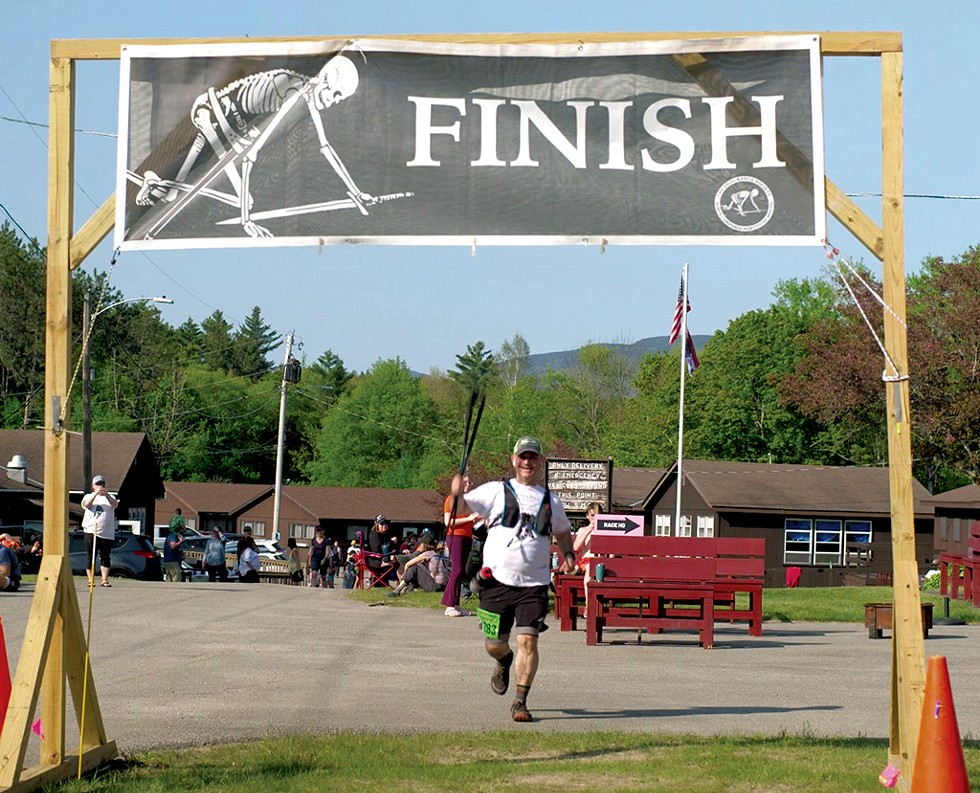

- Courtesy Of Corey Hendrickson
- Chip Piper crossing the finish line of his penta-marathon
Ultimately, Piper would like to start his own nonprofit and host a race in Michael's memory. It would likely be a 5K, he said, a distance "more on everyone's level."
But for now, he is focused on training and fundraising. He's building up to running 50 miles a week, distances that he documents on the exercise app Strava. He runs early in the morning before heading to work at General Dynamics Ordnance and Tactical Systems in Williston, where he manages contracts.
When Piper is hurting on his training runs, he talks to Michael, which helps keep him going. Around his neck he wears a necklace with a silver bullet containing Michael's ashes. Often at his heels is his German shepherd, M.J., named for Michael.
"I get emotional on the trail. I laugh; I cry," Piper said. "I say, 'Hey, man, I gotta get through this, brother. You've gotta help me out.'"
While the grief that drives him now is relatively new, marathons are not.
Piper started running as a teenager — he was planning to enlist after graduating from Middlebury Union High School and feared he wouldn't be in shape for basic training. He joined the U.S. Army, which sent him to Germany, where he ran his first marathon, finishing fast enough that he qualified for the Boston Marathon. In 1989, he finished the Boston race in three hours and 46 minutes — and raised $1,300 for multiple sclerosis research.
Running faded from his life, and in his forties he gained a substantial amount of weight. Determined to improve his health and wean himself from blood pressure medication, he returned to running and lost more than 100 pounds.
Piper acknowledges that some might view his determination to run 10 marathons in 10 days as dangerously extreme. But he isn't concerned, pointing out that he's not aiming for speed — just to finish. If he begins to feel that continuing is unsafe, he's promised his wife that he'll stop.
"It's a better way to wreck your body than using drugs," Piper said. "I'm suffering, but those people who are using drugs are suffering way worse."
After completing the first marathon, Piper expects to be sore, tired and hungry. He'll go home, eat pasta salad, soak in an Epsom salt bath, sit in compression boots that push the lactic acid out of his legs, go to bed, wake up and run 26.2 miles again. And again, until he's done it 10 times.
What might be a minor inconvenience in a 5K — getting a side cramp or stepping in a puddle — can become a race-ending obstacle in an ultramarathon. Runners take to the starting line knowing there's a real possibility of a DNF, sports lingo for "did not finish."
"Doing a marathon a day for 10 days, you don't know how your body's going to respond," said Andy Weinberg, the Infinitus race director. "If you have really bad blisters on day five or day six, it might not happen."
Another uncertainty is whether Piper, with only $6,000 in gifts so far, will meet his goal of raising $25,000 through pledges, business donations and a series of raffles. The raffle items include an all-terrain vehicle, for which Piper hopes to sell enough $100 tickets to cover its $8,500 cost and another $11,500 to donate to Turning Point and Jenna's Promise. If ticket sales fall short, he said, he'll likely cover the $8,500 himself.
While that's a scary prospect, Piper said he'll consider the race worthwhile regardless of how much he raises. The message, he said, is more important than the money.
Jim Ploof, a friend of Piper's who won the Infinitus 100-mile race in 2022, said mental determination is often what propels an ultramarathoner across the finish line. Piper has that. His mission, to help people like Michael, keeps him moving.
"He's struggled, and it gives him a way to deal with it," Ploof said. "I think running itself has saved him."
Despite currently dealing with some knee pain, Piper is confident he can complete the 10-day challenge. "Mind over matter," he said. "Don't give up."
His cause, he said, is too important to consider quitting.
Help us pay for in-depth stories like this one by becoming a Seven Days Super Reader.
The original print version of this article was headlined "The Mourning Run | Chip Piper aims to run 10 marathons in 10 days. He's driven by grief over the loss of his stepson to drug addiction and the hope of helping others."
Infinitus Deca-Marathon, Thursday, May 16, through Saturday, May 25, at Silver Towers campground in Ripton.
Got something to say?
Send a letter to the editor
and we'll publish your feedback in print!
About The Author

Hannah Feuer
Bio:
Hannah Feuer is a culture staff writer at Seven Days. She's a 2023 graduate of Northwestern University, where she earned a bachelor's degree in journalism and economics. Her previous journalism experiences include stints with the Daily Northwestern, Reporters Without Borders, Medill Investigative Lab, Moment Magazine and Wisconsin Jewish Chronicle.
Hannah Feuer is a culture staff writer at Seven Days. She's a 2023 graduate of Northwestern University, where she earned a bachelor's degree in journalism and economics. Her previous journalism experiences include stints with the Daily Northwestern, Reporters Without Borders, Medill Investigative Lab, Moment Magazine and Wisconsin Jewish Chronicle.
More By This Author
Latest in Opioids
Speaking of...
-

'Safe Haven': Vermont Is Considering Controversial Overdose-Prevention Sites. 'Seven Days' Went to New York City to See One.
Mar 20, 2024 -

The Fight for Decker Towers: Drug Users and Homeless People Have Overrun a Low-Income High-Rise. Residents Are Gearing Up to Evict Them.
Feb 14, 2024 -

Backstory: The ‘Saddest Update’ on an Opioid-Addicted Source
Dec 27, 2023 -

Vermont Lawmakers May Have to Meet Growing Problems With a Shrinking Budget in 2024
Dec 20, 2023 -

New Burlington Health Clinic Will Serve People Struggling With Drugs
Nov 15, 2023 - More »





























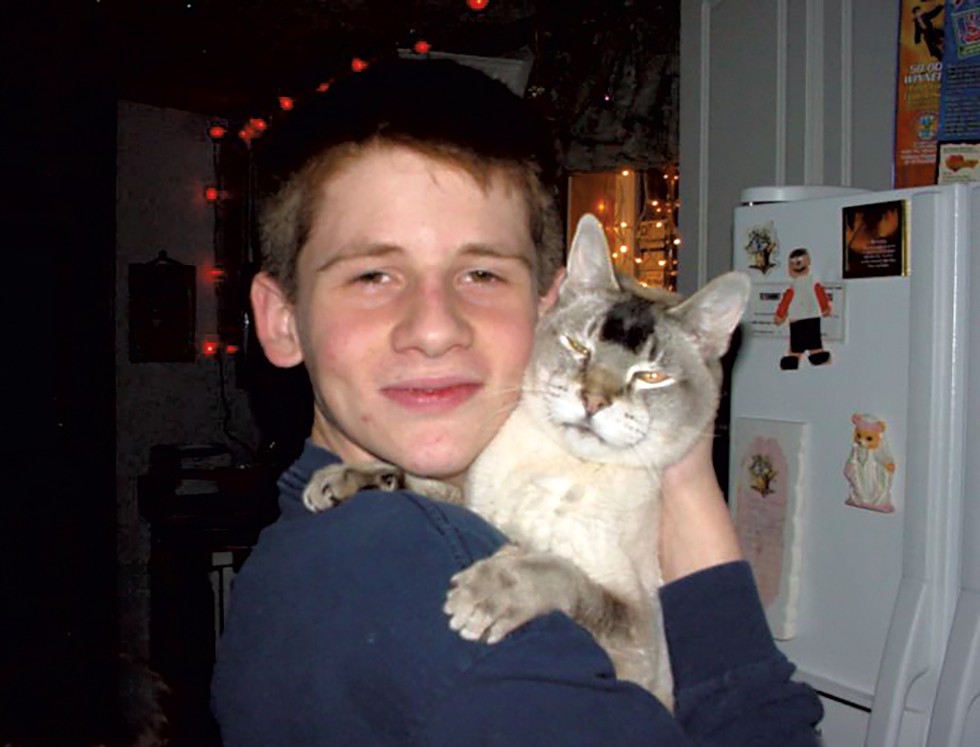
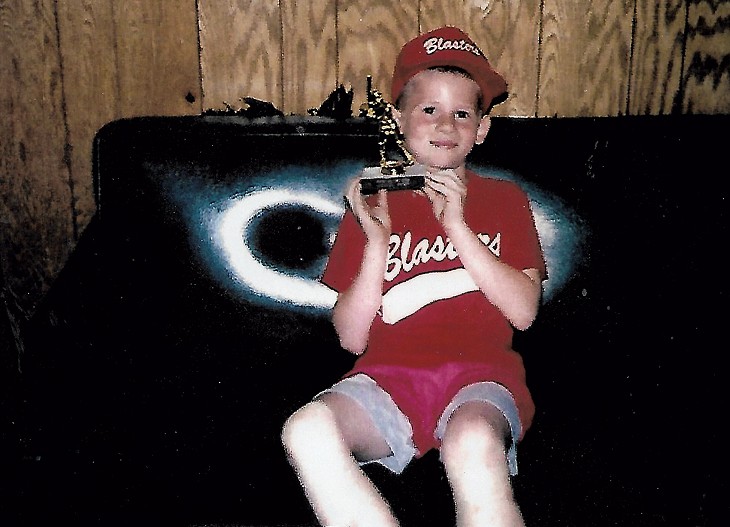
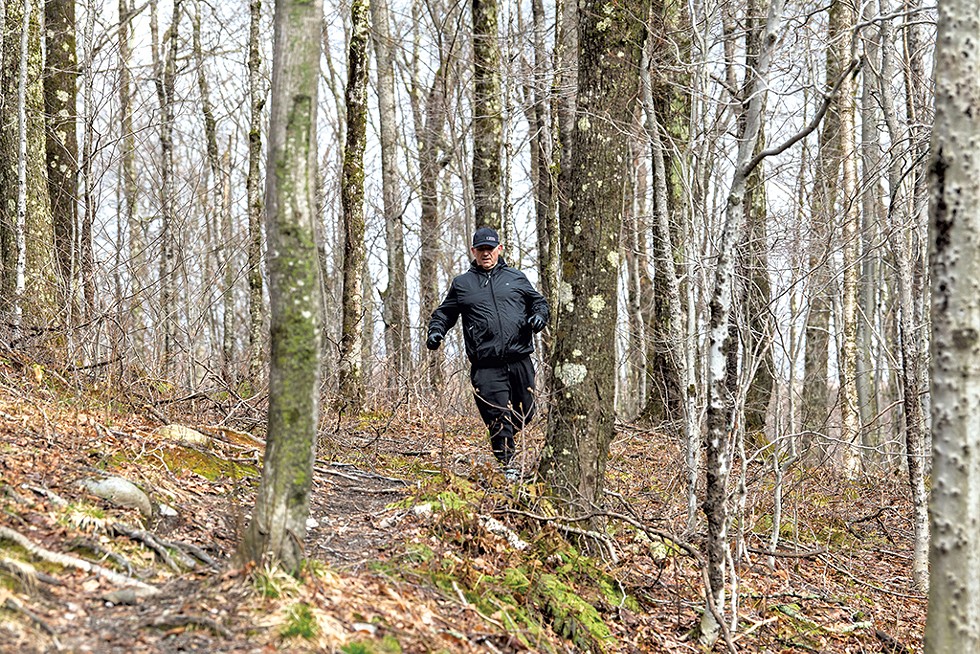
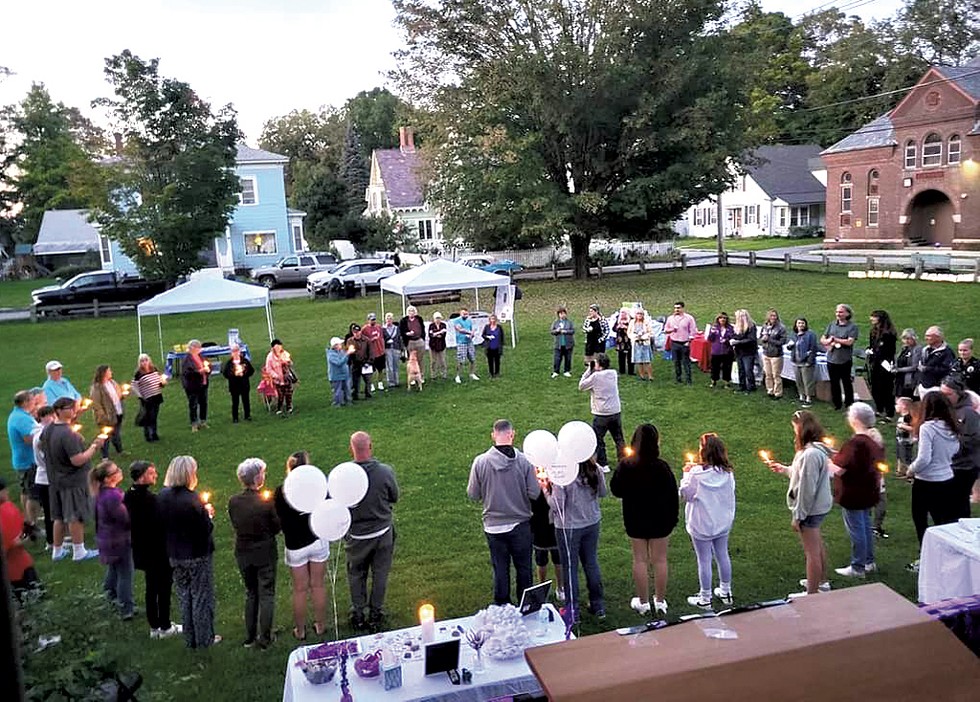
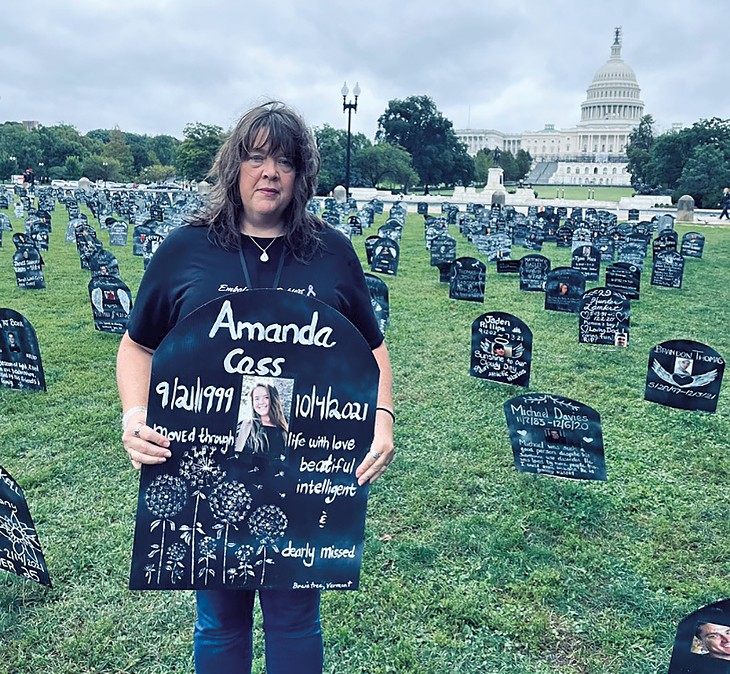
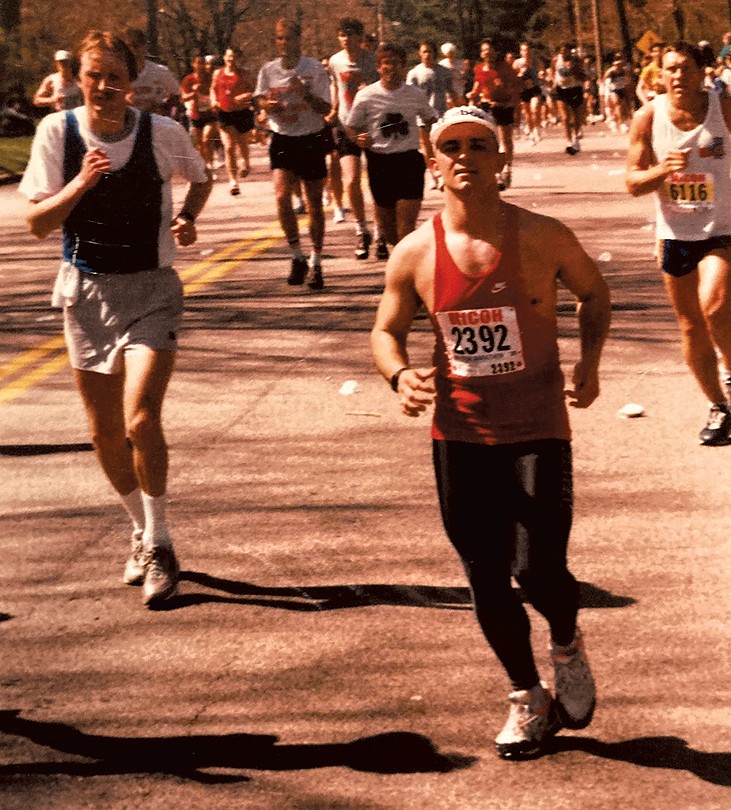






find, follow, fan us: